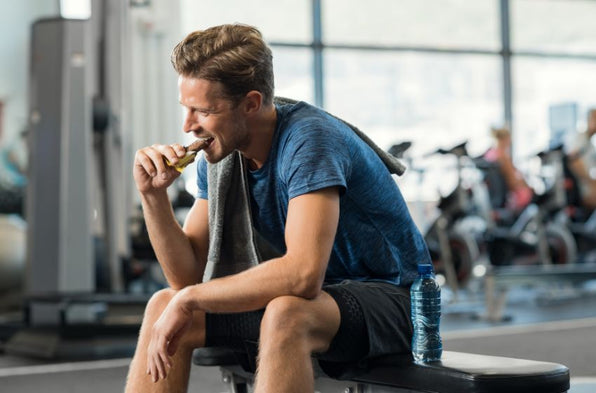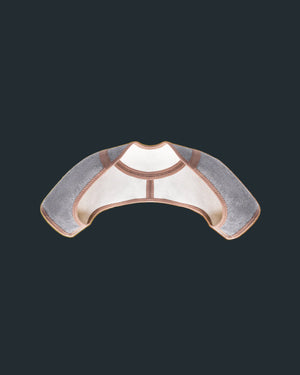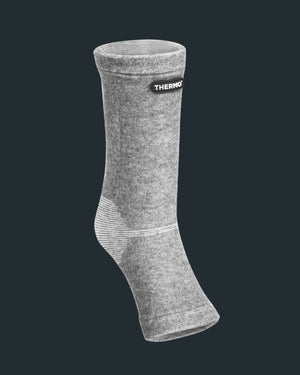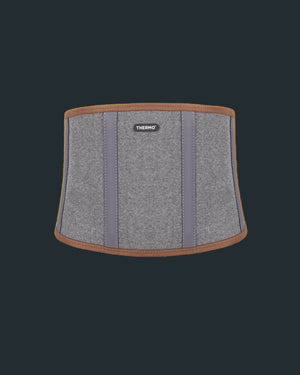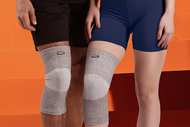Maximize your workouts and fitness journey with the top post-workout recovery foods. Learn how proteins, carbs, and fats contribute to faster muscle recovery.
Congratulations on completing your workout! Before you chill and rest, remember to fuel up with post-workout recovery foods. These foods are not just there to satisfy your hunger—they play a vital role in aiding your body's recovery and enhancing your overall workout results.
Understanding the science of post-workout nutrition can be a game-changer in your fitness journey. This article will provide an insightful guide on why these recovery foods matter and which ones are the best to consume after your workout.
The Science Behind Post-Workout Nutrition
Muscles use up stored glycogen as fuel every time you work out. This results in partial glycogen depletion and protein breakdown or damage. Post-workout is when your body tries to rebuild its glycogen stores and repair broken muscle proteins. Getting the proper nourishment expedites this process.
The golden trio for post-workout meal comprises proteins, carbohydrates, and fats. Proteins aid muscle repair and growth, while carbs help with glycogen replenishment. Fats aren’t considered critical in muscle growth, but they are valuable energy sources and can have anti-inflammatory properties, essential for healing.
Top Post-Workout Recovery Foods
An active recovery workout requires adequate nutrition. Here are the top post-workout foods to level up your muscle recovery from any intense workout:
Proteins
Proteins are the building blocks of muscle tissue and consuming them as part of your post-workout meal aids in muscle recovery and growth. Some top choices include:
Eggs
Often touted as nature's perfect protein source, whole eggs contain all the essential amino acids your body needs for muscle protein synthesis. The yolk provides healthy fats and essential vitamins, like vitamin D, crucial for bone health and immune function.
A serving of two to three whole eggs after a workout will provide around 12-18 grams of protein, ideal for muscle recovery.
Chicken
This lean meat is packed with high-quality protein and a powerhouse of essential vitamins and minerals, such as B vitamins, necessary for energy production. Consuming chicken after a workout will provide your body with the necessary protein for muscle recovery and growth, making it a staple in many athletes' diets.
A standard serving size for chicken is about 3-4 ounces (around the size of your palm or a deck of cards). This provides around 25-30 grams of protein.
Greek Yogurt
With double the protein and less sugar than regular yogurt, Greek yogurt stands out as a perfect post-workout snack. The additional protein aids muscle repair and growth, while the probiotics support a healthy gut microbiome.
Pair it with fruit or honey for a refreshingly sweet and protein-rich treat. A typical serving size of one cup offers about 15-20 grams of protein.
Protein Powders
Protein powders offer convenience and versatility for those on the go or who prefer a liquid-based post-workout snack. Whey protein, a popular choice, is quickly absorbed and reaches the muscles rapidly, initiating the recovery and rebuilding process immediately.
Pea protein and casein are other great options for personal preference and dietary restrictions.
Recommended serving sizes for protein powders vary by brand. Typically, one scoop (around 25-30 grams) mixed with water or milk will provide around 20-25 grams of protein. We recommend checking the labels for product instructions.
Carbohydrates
Carbohydrates help replenish the glycogen burned during exercise. Some excellent sources include:
Quinoa
Quinoa is a unique grain because it's one of the few plant foods that offer all nine essential amino acids, making it a complete protein. Its high protein and rich carb content perfectly balance post-workout recovery.
An ideal serving size of cooked quinoa is around 1-2 cups, providing approximately 30-60 grams of carbohydrates. Mix it with veggies and lean protein for a balanced recovery meal.
Sweet Potatoes
These are a fantastic source of complex carbohydrates, meaning they release energy slowly and help maintain stable blood sugar levels. This sustained release of energy makes them perfect for post-workout consumption, providing long-lasting fuel to assist with recovery after intense exercise.
Their high content of beta-carotene, a powerful antioxidant, helps combat oxidative stress that may occur with intense workouts. Depending on their size, one medium sweet potato offers about 23 grams of carbohydrates. You can enjoy it baked, boiled, or mashed.
Bananas
Bananas are chock-full of fast-digesting carbs and potassium, an essential mineral for heart and muscle function. Consuming bananas post-workout can provide a quick energy boost and accelerate glycogen replenishment, kicking off recovery.
One medium-sized banana, perfect for a quick post-workout snack, provides around 27 grams of carbohydrates. They are great on their own or paired with a source of protein like Greek yogurt or a protein shake.
Fats
While fats may not be as crucial in recovery, moderate consumption has energy-boosting benefits you’ll find beneficial on your next workout. Some healthy fat sources include:
Avocados
Avocados are a nutrient powerhouse, providing healthy monounsaturated fats, fiber, and a variety of essential vitamins and minerals. The healthy fats in avocados are great for reducing inflammation, supporting cell membrane health, and aiding the absorption of fat-soluble vitamins, all essential for recovery.
A serving size for avocados is typically one-third of the fruit, which gives you a healthy dose of fats (about 10 grams) and fiber. Add sliced avocado to salads, spread it on whole-grain toast, or mix it into a post-workout smoothie.
Nuts
Nuts are small but mighty when it comes to their nutritional content. They are packed with healthy fats, protein, and fiber, providing sustained energy and helping to regulate blood sugar levels.
The healthy fats in nuts offer antioxidant benefits, combat inflammation, and aid in the repair and growth of tissues—crucial elements for recovery after an intense workout.
A good serving size for most nuts is a small handful (about 1 ounce), providing a balanced mix of protein, fats, and fiber. They are great as a snack or can be added to salads, oatmeal, or yogurt for a satisfying crunch.
Water
While less complex than a post-surgery workout, routine workouts still require sufficient hydration. Water supports every metabolic process in your body, including nutrient transportation. When you exercise, your body loses a lot of fluids through sweat, leading to dehydration if not properly replaced.
Apart from quenching your thirst, staying hydrated provides the following benefits:
- Temperature Regulation: Water is crucial in regulating your body temperature. Staying hydrated post-workout aids in maintaining your body's temperature balance and prevents overheating, especially after intense exercise.
- Muscle Recovery: Water assists in transporting nutrients to the cells in your body and removing waste products, both of which are crucial for muscle recovery and growth.
- Joint Lubrication: Proper hydration can also aid in maintaining your joint lubrication, which promotes exercise flexibility and prevents injuries.
Appropriate water intake can vary based on the intensity of the workout, the environmental conditions, and individual sweat rates. A common practice is to get your body weight before and after exercise and to drink 16-24 ounces of water for every pound lost.
A balanced approach would be to drink water consistently throughout the day and monitor signs of hydration, such as urine color (clear or light yellow typically indicates good hydration).
Meal and Snack Ideas for Optimal Post-Workout Recovery
Pairing proteins, carbs, and fats can create balanced post-workout meals. Here are a few ideas:
- Grilled chicken with roasted vegetables
- Egg omelet with avocado spread on whole-grain toast
- Protein shake with banana and a scoop of peanut butter
- Greek yogurt with berries and a drizzle of honey
- Salmon with sweet potato
- Turkey and cheese on whole-grain bread
- Quinoa salad with mixed vegetables and grilled tofu
- Lean steak with brown rice and broccoli
- Almond butter on whole-grain toast
- Cottage cheese with French berries
- Hummus and carrot sticks
Supplements for Post-Workout Recovery
While whole foods should always be your first choice, supplements can be handy when you're short on time or when convenience is critical. Here are things to keep in mind when shopping for your supplements:
- Know Your Needs: The first step is understanding your specific dietary needs and workout goals. Do you want to build muscle, improve endurance, lose weight, or speed up recovery? Each goal may require different types of supplements.
- Protein Powders: Whey protein is a common supplement due to its high-quality protein and quick absorption rate, making it a good option for muscle recovery. Consider plant-based proteins, like peas or hemp, if you're lactose intolerant or vegan.
- BCAAs: Branched-chain amino Acids (BCAAs) are essential amino acids that can help speed up muscle recovery and reduce muscle soreness.
- Creatine: This supplement can increase muscle strength and power, making it useful for high-intensity workouts. It's also been shown to help with muscle recovery.
- Glutamine: Glutamine is an amino acid that aids in muscle recovery and boosts the immune system. It can be beneficial for those doing intense workouts.
- Quality and Transparency: Look for third-party supplements tested for quality assurance. Checking for a seal from organizations like USP (U.S. Pharmacopeia), NSF International, or Informed-Choice can provide an added layer of trust.
- Understand the Ingredients: Be aware of what’s in your supplement. Avoid products with a long list of artificial ingredients. If there are ingredients you don't recognize or can't pronounce, you might want to think twice before taking it.
- Consult with a Professional: If you need clarification on what supplements you should take, consult a registered dietitian or a healthcare provider specializing in sports nutrition. They can provide personalized advice based on your specific needs and goals and the appropriate recovery gear to wear during exercise.
When to Eat Post-Workout Meals
The timing of your post-workout meal plays a significant role in your recovery and how effectively your body can build and repair your muscles after a workout. While there's no one-size-fits-all answer, here are some guidelines and examples to help you understand how meal timing works:
- The Anabolic Window: This is a period of around 30 minutes to two hours immediately following your workout. During this time, your body is primed for nutrient absorption, and consuming a balanced meal can accelerate recovery and facilitate muscle growth. For instance, if you finish a workout at 7:00 AM, aim to have your post-workout meal or snack by 7:30 to 9:00 AM.
- Pre-Workout Meal: If you've had a substantial pre-workout meal, especially one rich in protein, the pressure to eat immediately after exercise is lessened. Your body will still be processing the nutrients from your pre-workout meal during and after your workout. For example, if you eat a chicken and quinoa salad at 12:00 PM and work out at 1:00 PM, waiting until 2:30 PM or 3:00 PM before consuming your post-workout meal is acceptable.
- Fasted Training: If you train in a fasted state (like first thing in the morning before eating), consuming a post-workout meal soon after finishing your session to replenish glycogen stores and kickstart muscle repair is usually beneficial. If you wrap up a fasted workout at 6:00 AM, try eating your post-workout meal within 30 minutes or by 6:30 AM.
Conclusion
Post-workout nutrition is a key player in muscle recovery and growth. It's important to fuel your body with high-quality proteins, carbs, and certain fats to optimize this process.
The fitness journey is not one-size-fits-all, so gear up with your quality recovery wear and make your post-workout recovery as unique and efficient as your workout routine!
